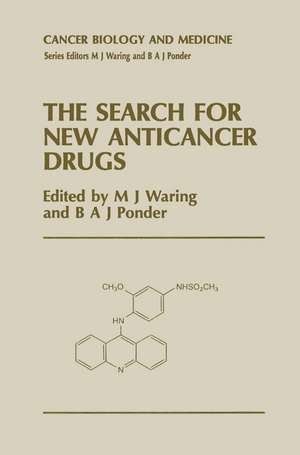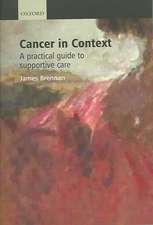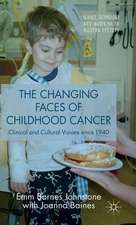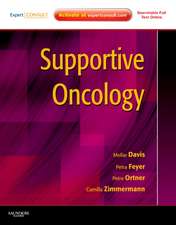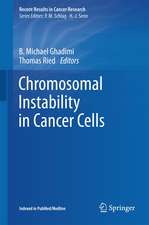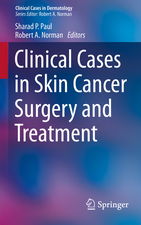The Search for New Anticancer Drugs: Cancer Biology and Medicine, cartea 3
Editat de M.J. Waring, B.A. Ponderen Limba Engleză Paperback – 28 sep 2011
This book represents a compilation of views and progress reports which illustrate the diversity of approaches to the problem. Recent research has confirmed the belief that critical genetic changes are at work in cancer cells. The genome, then (DNA in biochemical terms), surely represents a critical target for specific chemotherapy of cancer, and several chapters address the issue of attacking DNA, gene targetting, and the like. Others deal with principles of rational design, exploitation of novel modalities and targets, or the nuts and bolts of antitumour drug testing. While no attempt has been made to provide a comprehensive coverage of this wide-ranging and vitally important subject, the present volume in the series will provide much food for thought.
Preț: 368.73 lei
Preț vechi: 388.13 lei
-5% Nou
Puncte Express: 553
Preț estimativ în valută:
70.55€ • 73.67$ • 58.39£
70.55€ • 73.67$ • 58.39£
Carte tipărită la comandă
Livrare economică 04-18 aprilie
Preluare comenzi: 021 569.72.76
Specificații
ISBN-13: 9789401066594
ISBN-10: 9401066590
Pagini: 296
Ilustrații: 296 p.
Dimensiuni: 155 x 235 x 16 mm
Greutate: 0.42 kg
Ediția:Softcover reprint of the original 1st ed. 1992
Editura: SPRINGER NETHERLANDS
Colecția Springer
Seria Cancer Biology and Medicine
Locul publicării:Dordrecht, Netherlands
ISBN-10: 9401066590
Pagini: 296
Ilustrații: 296 p.
Dimensiuni: 155 x 235 x 16 mm
Greutate: 0.42 kg
Ediția:Softcover reprint of the original 1st ed. 1992
Editura: SPRINGER NETHERLANDS
Colecția Springer
Seria Cancer Biology and Medicine
Locul publicării:Dordrecht, Netherlands
Public țintă
ResearchCuprins
1. Is there a future for the small molecule in developmental cancer chemotherapy?.- 2. The role of medicinal chemistry in the discovery of DNA-active anticancer drugs: from random searching, through lead development, to de novo design.- 3. In vitro systems for anticancer drug testing.- 4. Tumour hypoxia: challenges for cancer chemotherapy.- 5. Computer modelling and drug design.- 6. Differentiation inducers and their potential use in the treatment of acute myelogenous leukaemia.- 7. Angiosuppression.- 8. Preclinical evaluation and phase I trials.- 9. Evaluation: how should a new treatment be evaluated?.- 10. Oncogene-targeted antisense oligonucleotides: tools for genetic analysis or new anticancer drugs?.
Recenzii
` Overall, then, a well-edited and pretty up-to-date collection of interesting and useful articles. I would recommend it for a post-graduate seminar or debate on the medicinal chemistry of cancer. '
Annals of Oncology
` This book is recommended both for scientists engaged in anticancer drug development and for the interested outsider. In general it is well produced and, apart from a few exceptions, most of the chemical structures are refreshingly well drawn. The individual chapters are nicely sub-sectioned and all are comprehensively referenced to the primary literature; indeed some of the references have already been useful in our own work. '
Clinical Oncology, 5:4
Annals of Oncology
` This book is recommended both for scientists engaged in anticancer drug development and for the interested outsider. In general it is well produced and, apart from a few exceptions, most of the chemical structures are refreshingly well drawn. The individual chapters are nicely sub-sectioned and all are comprehensively referenced to the primary literature; indeed some of the references have already been useful in our own work. '
Clinical Oncology, 5:4
